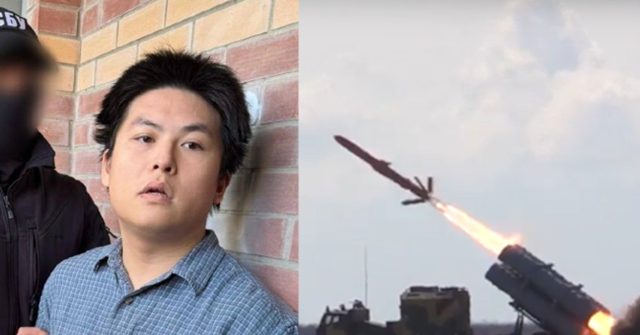Kyiv claims to have arrested a father-son team of alleged Chinese spies attempting to smuggle documents about a new Ukrainian anti-ship cruise missile to Beijing intelligence.
A 24-year-old former student of Kyiv university, a Chinese citizen who Ukraine says elected to remain in Ukraine in wartime after his studies were terminated for academic underachievement in 2024, was arrested “on suspicion of espionage”. A second Chinese national, said to be the man’s father on a visit to Ukraine, was also arrested on the same charge.
Ukraine’s Security Service (SBU), the nation’s main internal intelligence and counter-terror bureau, claims through a statement released by the Prosecutor General that the men were caught red-handed in the process of transferring stolen documents pertaining to the Ukrainian indigenously-developed Neptune cruise missile, well known as the weapon used to sink the Russian cruise Moskva in 2022.
Kyiv stated the elder male, said to be the 24-year-old’s father, was normally a resident of China but made frequent trips to Ukraine. The man is alleged to have “close ties with the security agencies and the General Staff of China” and made trips to Ukraine for the purpose of managing his son’s espionage operation.
The Chinese male last arrived in Kyiv from China on July 7th, visited the Chinese embassy on July 8th, and was arrested this morning, July 9th, apparently in the act of receiving stolen missile documents.
The suspect’s digital devices have been seized and they are being detained pending trial. Per Kyiv state media, they face up to 15 years in prison under the espionage law of Article 114 of Ukrainian law.
The Neptune missile the men are alleged to have been attempting to smuggle out information on is a new Ukrainian-developed subsonic anti-ship cruise missile. Responding to wartime needs, the missile was pressed into service shortly after the renewed Russian invasion despite it still being technically in development, with pre-production versions used to damage the Russian frigate Admiral Essen, and then sink the cruiser Moskva in 2022.
The success of the missile in that shock success in taking out a major surface combatant of an otherwise asymmetrically superior military force saw global attention turn to the weapon and — doubtless — triggered espionage efforts, such as those now alleged by Kyiv.
The needs of war also saw a new variant of the weapon developed for anti-land use, with greater range, a larger warhead, and improved navigation systems.
That land-attack variant has seen the missile bracketed alongside the U.S. ATACMS missile and the Anglo-French Storm Shade cruise missiles, and targets including oil refineries deep inside Russia struck with the weapon.
President Volodymyr Zelensky has said the missile entered full production in 2024 after 14 years of development, and boasted of a 620-mile range for the improved variant.
Missile development is fraught with industrial sabotage as nations and defence firms vie for supremacy and advantage in defeating each other’s killer weapons. As reported last month, two Chinese nationals were charged in the U.S. with attempting to recruit U.S. Navy personnel for espionage.
Read the full article here


